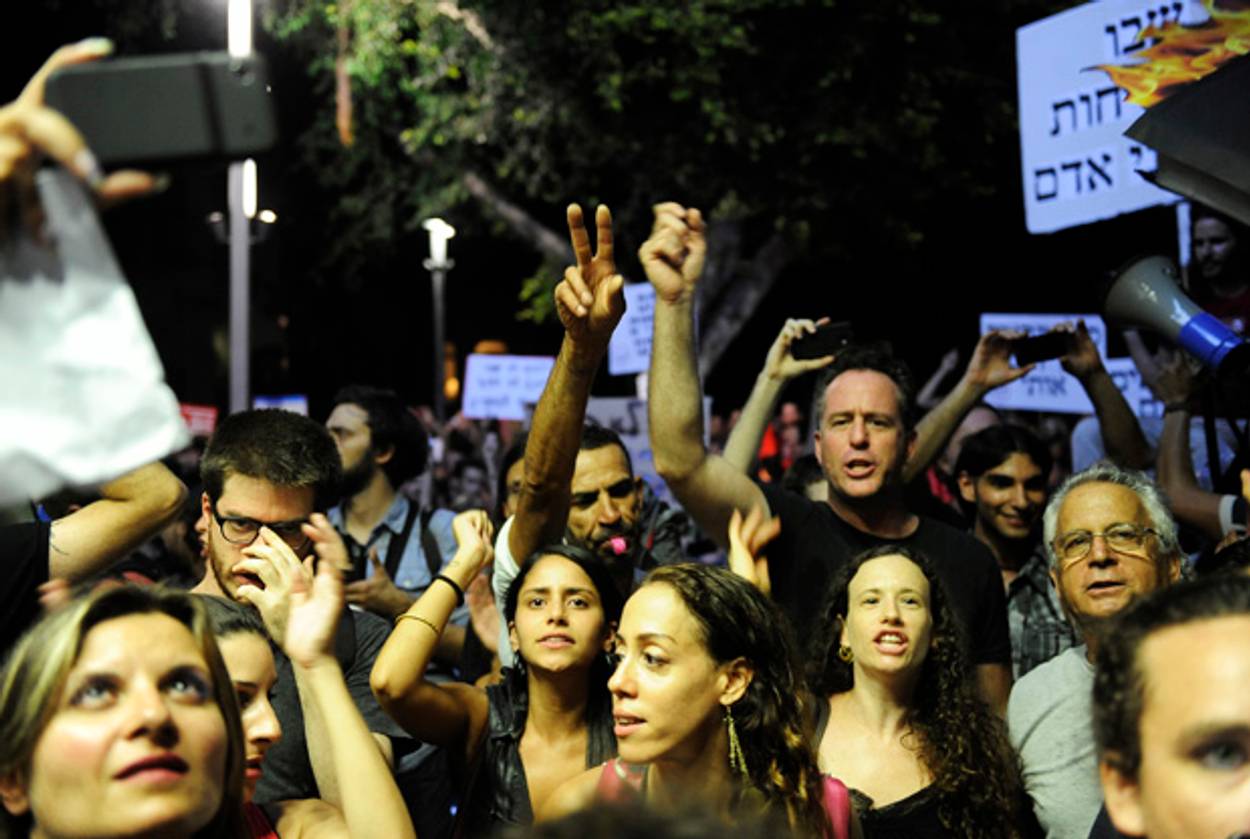Signs of Splintering as #j14 Anniversary Nears
More on the profile of Mickey Gitzin today on Tablet




My profile of Mickey Gitzin and his organization, Yisrael Hofshit (Be Free Israel), today in Tablet Magazine is about a lot of things—in fact, for me it is most of all about the too often unappreciated blandishments of pluralist American Jewish identity.
But for many in Israel, the story is the increasingly divergent points of focus, and arguably splintering, of what at least last year seemed a fairly coherent mass protest movement. Not entirely unlike Occupy Wall Street, the #j14 protests of 2011 had real anger and real declared enemies, but only vague—or, at the least, nonspecific—political demands. Yisrael Hofshit, by contrast, which well predates #j14, does have a specific politics, which is to say that, by definition, it has divisive politics. (Once you stand for something, there will be others who stand for the opposite.) That’s why some I quote in my article were opposed to raising the issue of Haredi conscription in the context of the social justice movement. Now, only yesterday, Daphni Leef—more than any other person, the head of #j14—went to the heavily Orthodox town of Bnei Brak, east of Tel Aviv, to try to recruit traditionally religious Israelis for a planned protest on Saturday night, which is, yes, July 14. Activists chanted, “Haredim and seculars refuse to be enemies”: an implicit rebuke to those marching for Haredi conscription (although Gitzin insisted repeatedly that he respects the Haredim, and that his beef is with the government and the status quo agreement). According to Ynet, Leef’s gambit was almost completely unsuccessful.
Also, it looks like there will be two different marches in Tel Aviv Saturday night, despite efforts to unify them. Uh-oh.
Finally, I found Bradley Burston’s latest column to be resonant with what I reported as Gitzin’s distinctively American take on religion. It’s about the benevolence of Americans’ influence on Israeli society.
Israel’s Tent Protest Politico [Tablet Magazine]
Daphni Leef Seeks Supporters in Bnei Brak [Ynet]
Israeli Demonstrators To Mark First Anniversary of Social Protest [Haaretz]
‘If A Million American Jews Came To Live in Israel, There’d Be Peace’ [Haaretz]
Marc Tracy is a staff writer at The New Republic, and was previously a staff writer at Tablet. He tweets @marcatracy.